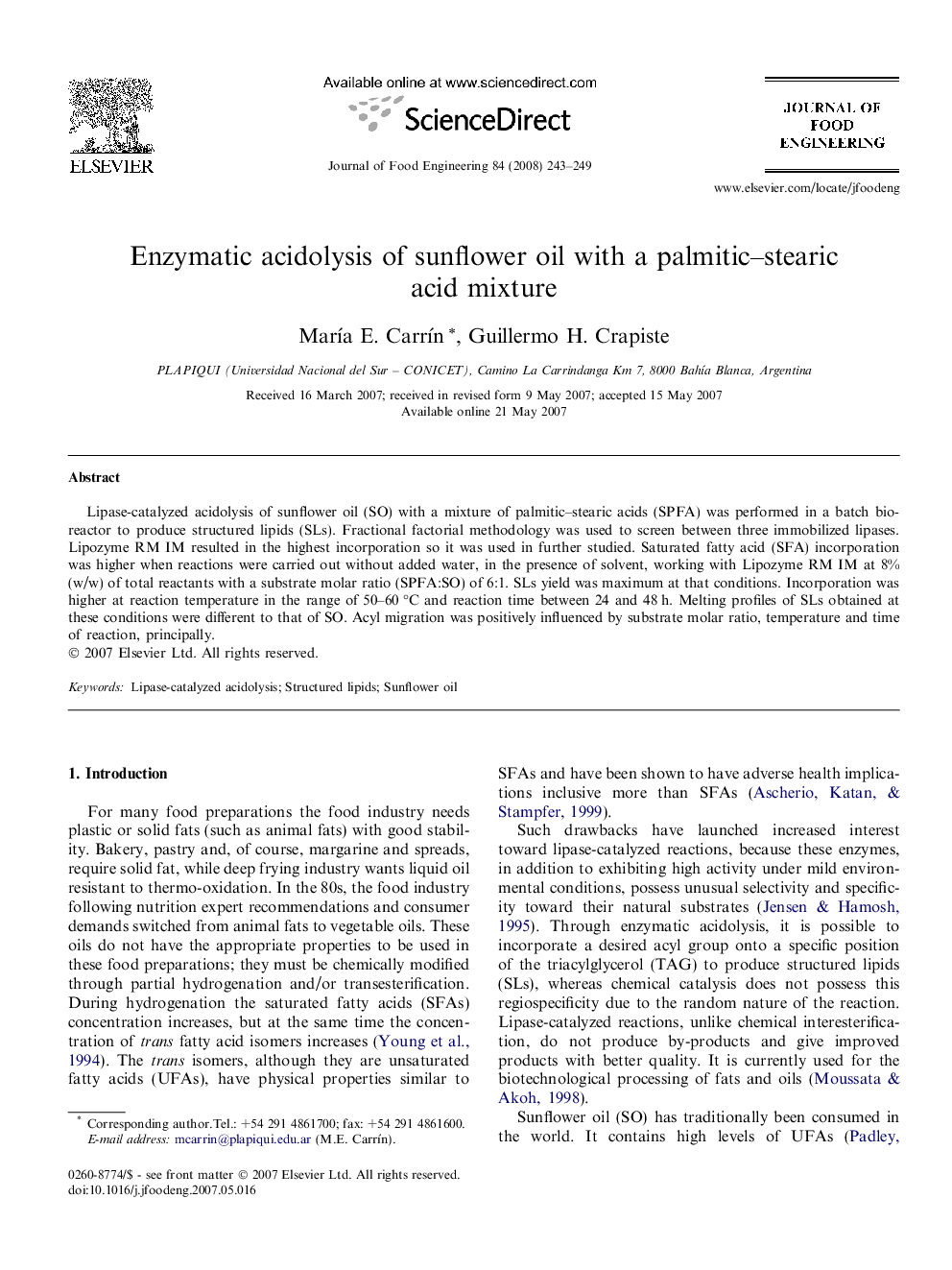| Article ID | Journal | Published Year | Pages | File Type |
|---|---|---|---|---|
| 226120 | Journal of Food Engineering | 2008 | 7 Pages |
Lipase-catalyzed acidolysis of sunflower oil (SO) with a mixture of palmitic–stearic acids (SPFA) was performed in a batch bioreactor to produce structured lipids (SLs). Fractional factorial methodology was used to screen between three immobilized lipases. Lipozyme RM IM resulted in the highest incorporation so it was used in further studied. Saturated fatty acid (SFA) incorporation was higher when reactions were carried out without added water, in the presence of solvent, working with Lipozyme RM IM at 8% (w/w) of total reactants with a substrate molar ratio (SPFA:SO) of 6:1. SLs yield was maximum at that conditions. Incorporation was higher at reaction temperature in the range of 50–60 °C and reaction time between 24 and 48 h. Melting profiles of SLs obtained at these conditions were different to that of SO. Acyl migration was positively influenced by substrate molar ratio, temperature and time of reaction, principally.
